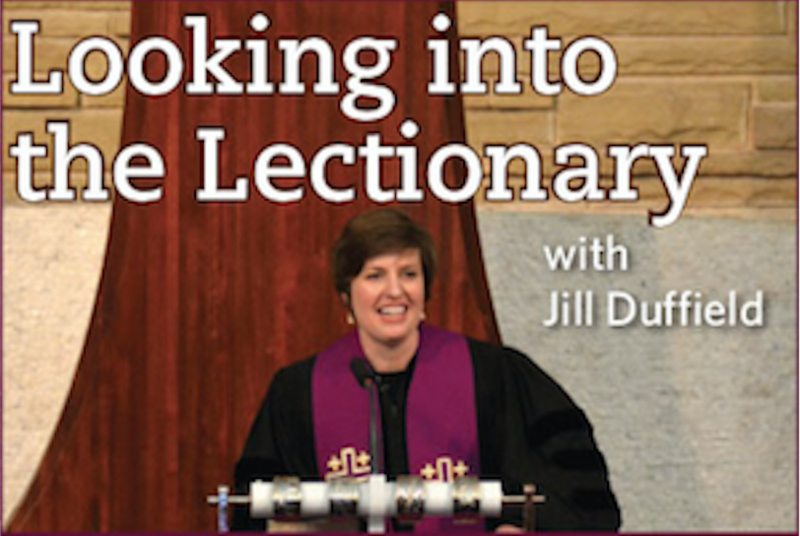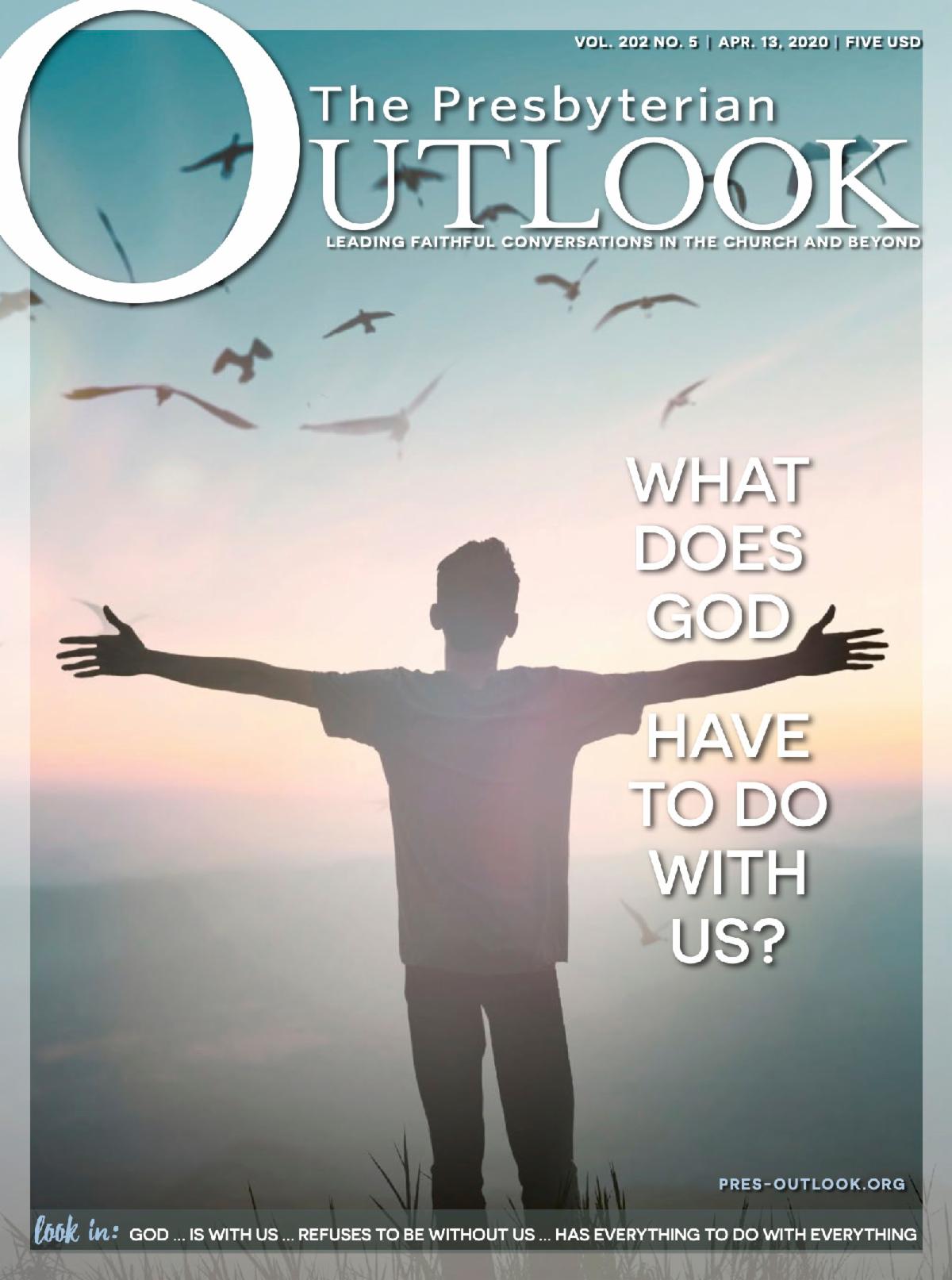Like New Yorkers in the days after 9/11 or perhaps many of us sorting through the impact of COVID-19, we must talk about these life-upending, heretofore-unthinkable happenings. Somehow, the conversations, even when they are circular, repetitive and without answers, are inevitable. We cannot NOT ruminate over the circumstances in which we unexpectantly, unwillingly find ourselves. We need to check with those close to us so as to see if they are feeling what we are feeling, wondering what we are wondering. Do they have the same questions? Worries? We want to know what others think will happen next and how we should respond now that all our past assumptions no longer seem valid.
I picture the two lost in intense conversation, and interrupted by this interloper who comes alongside them, asking casually, "So, what's going on?" The matter-of-fact greeting is totally tone-deaf in the wake of the week's events. It might be as if someone came up to you in the grocery store aisle, standing way too close for COVID-19 comfort, and asked, "Why are you wearing a mask?" "What do you mean, why am I wearing a mask? Are you the only person on planet earth who has not heard of this global pandemic and all the pain and suffering it has wrought?" We'd likely not think too kindly of such a thoughtless question, especially if we personally have been laid off or lost a loved one or are doing essential work. Luke tells us their eyes were kept from recognizing Jesus. However, I can't blame them for their lack of astuteness. Wouldn't Jesus be more sensitive to the moment? Knowing their confusion and hurt, why did he not simply announce himself? Why the subterfuge? Is this some sort of test?
They are prevented from recognizing Jesus, but despite their shock at his ignorant query, they do not ask him to leave. In fact, they tell him exactly what they are talking about on the road. They detail the who, what, when, where and why. They give their testimony, bearing witness to the One they cannot yet recognize. They seem to take this stranger at his word, odd as it is that he does not know what happened in Jerusalem, and share not only what they know, but how they feel. No anger. No defensiveness or derision. Just a plain telling of what is consuming their hearts and minds as they make their way to Emmaus.
Their honesty and authenticity, their lack of judgment of the person in front of them, leads to a deep conversation about ultimate things with this stranger they'd at first thought clueless. They tell without malice what they think and feel, where they are in that moment, and then this newcomer shares with them what he thinks and feels, too. He invites them to put their knowledge into a larger context, a larger story they once knew well, but that their current crisis has caused them to forget.
We could use some of this bigger picture framing right now, in this Easter season awash in the death of Holy Saturday, we need to be reminded of God's creation-encompassing salvation story. Cleopas voices a hopelessness that many may now feel, which I suspect all of us feel at one point or another. He says, "We had hoped." Past tense. Done. We had hoped. Then he adds, "Besides all this. It is now the third day." Besides all this... it is now the third day. There is no way possible that all we had hoped can ever come to fruition. It is now the third day. Call off the search party and move to try to recover the body. The odds of survival are now zero. "Moreover," Cleopas continues, "the women told us this unbelievable, really unbelievable story, about the body gone and angels present and that Jesus is alive, but the men didn't see him, can't confirm this, and obviously everyone has lost their minds and really, who can blame them, these events are a crazy-making, devastating source of despair for us all."
The economy is wrecked. We've been told to stay home not for weeks but for months. There may well be a resurgence of cases in the fall. We do not know who to trust, what advice to follow, when we will be able to be together again. So much of what we'd hoped for this spring and the future did not come to fruition and besides all this, it is now over a month and people are still dying and moreover, we keep hearing various projections about when we will go back to normal or if we will ever go back to normal or what normal ought to even be after this.
How can we talk of anything else?
But on this third Sunday of Easter, the Risen Jesus comes alongside us and hears us as we pour our hearts out. He asks, "What things are you discussing?" And let's us tell him plainly, as raw as we need to, all that's on our hearts and minds. Then, he offers us a Word. He asks, after all, what is this "logos" that you are holding with each other? He offers us God's Word. He offers us himself. He gives us his body made known to us in the breaking of the bread. He gives us the bigger context of this tumultuous, scary, hope-testing, expectation-upending time. He tells us again God's salvation story that has not ended and will not go untold or unaccomplished.
He calls us to remember. Remember all he taught us. Remember, he promised to meet us in Galilee. Remember, he will be with us. When we urge Jesus to stay, he will come and eat with us. Remember, our third day of despair is God's eighth day of creation. Your hopes are not unfounded. Your faith is not misplaced. The women's testimony is true. Get off the well-known road to Emmaus, turn and follow Jesus into the reeling chaos of Jerusalem, because now is not the time to seek personal safety or temporal security, now is the time to consume and be consumed by the living Logos of grace and truth. Now is the time to tell the bigger picture of God's will of abundant, new life for the world. Now is the time to let the painful events of Jerusalem, the things we cannot stop talking about, shape us in ways that reflect Christ's redemptive mercy for God's good and groaning world.
Have not our hearts burned within us these past weeks? Have we not heard and spoken the Logos? Has Jesus not been made known to us in the breaking of the bread, even when we've not been in sanctuaries and around communion tables? Jesus has come alongside us wherever we are, in our deep sadness, reminding us of God's salvation story. The risen Christ reminds us of all we may forget when we are overwhelmed by current events. He makes himself known to us so that we can go and make him known to others.
This week:
- If Jesus were to come alongside you today and ask what you are talking about, what would you say?
- Are there particular stories or verses in Scripture that would be helpful for you to remember in this current time? How can you keep them in the forefront of your mind? How do they shape your understanding of current events?
- When has your heart burned within you? How did you come to recognize that it was the presence of God?
- What do you make of the lack of agency on the part of the two disciples? Why does Luke tell us that they were kept from recognizing Jesus and then later that their eyes were opened?
- Can you recall a time when celebrating communion was especially meaningful to you? Have you experienced "virtual communion"? If so, what has that experience been like for you? Did you recognize Jesus even though you were not in the same space as those with whom you were worshipping?
- When has Jesus prompted you to change directions? Take a different road? What happened as a result?





No comments:
Post a Comment